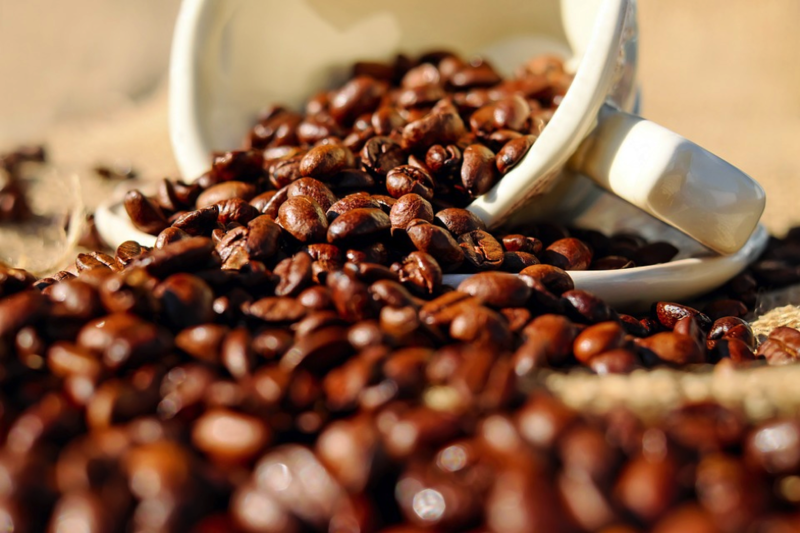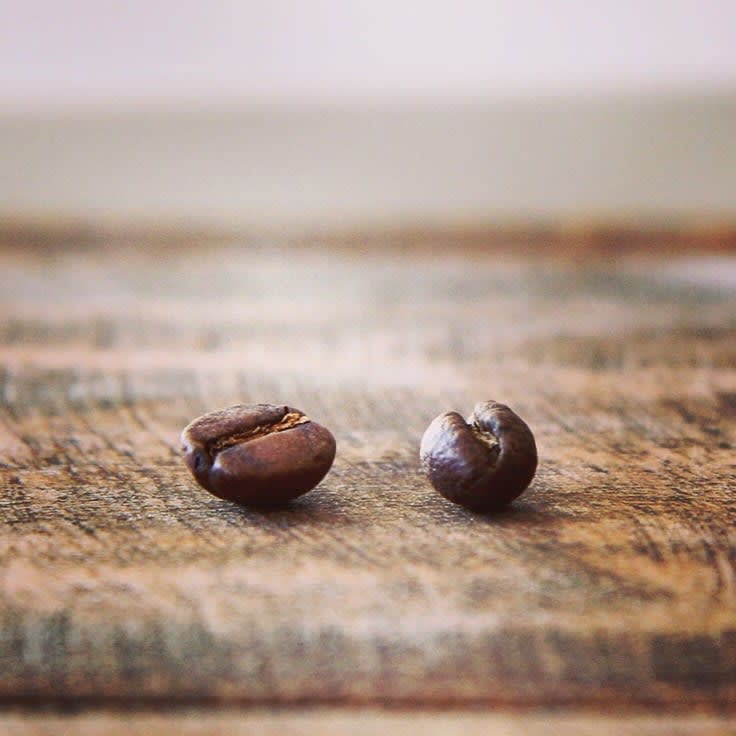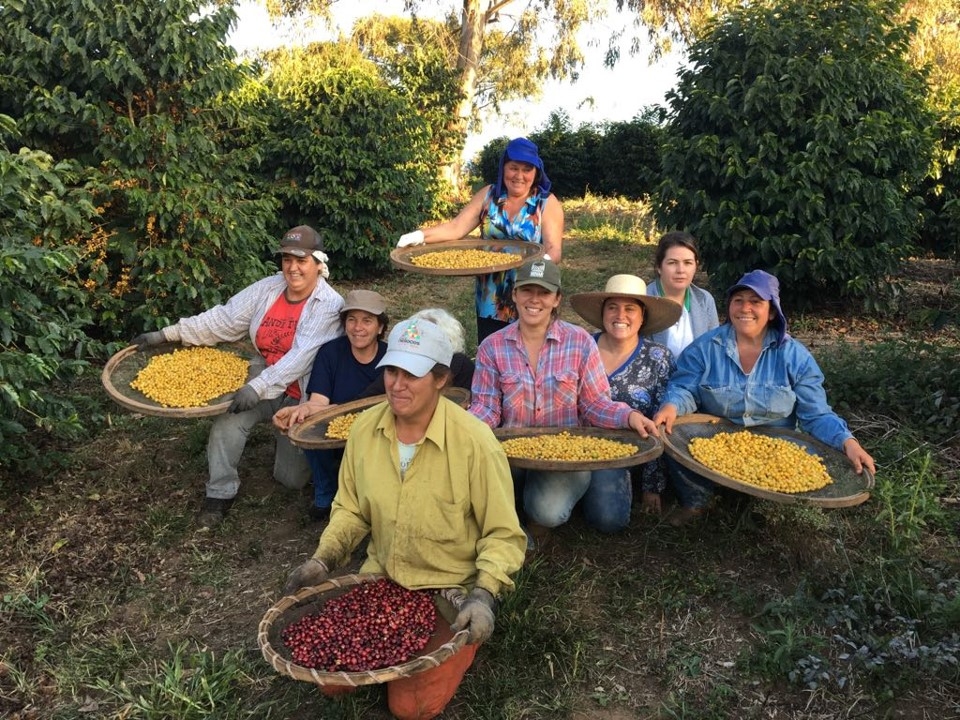What happened to your coffee? Learn about the 8 "rumors" about coffee!
Professional coffee knowledge exchange more coffee bean information please follow the coffee workshop (Wechat official account cafe_style)
Besides water, coffee is the most consumed drink in the world. People from different cultures and industries have been enjoying this brewing drink for centuries. Coffee has a long and rich history, and it also plays an indispensable role in our lives, so we know a lot about coffee, and naturally there are many misunderstandings.
With the passage of time, some "rumors" about coffee are still circulating and growing, not decreasing. Today, the editor wants to talk to you about some of the most common coffee "rumors" and write them down bluntly.

Coffee "rumor" # 1: deep roasting contains more caffeine than light roasted coffee beans
There is nothing more exciting than to start every day with the rich aroma of perfectly roasted coffee. But everyone has their own opinion on the best roasting degree of the first cup of coffee in the morning, and many people think that the deeper the better. This is partly due to the widespread misconception that "deep-roasted coffee beans contain more caffeine than light-roasted coffee beans".
Sounds logical. Deep-roasted coffee beans are bright in color, full in aroma and rich in flavor. Why isn't caffeine "richer"?
The fact is that most coffee beans contain roughly the same amount of caffeine, regardless of the degree of roasting.
Please note that we are talking about "roughly the same". There are slight differences in different roasting methods. When a raw coffee bean is heated, it darkens slowly and eventually turns into a rich brown. The darker the coffee beans, the longer the roasting time. Calories reduce the amount of caffeine in beans, so lighter roasting retains slightly more caffeine because they are heated for less time during baking.
For this reason, the traditional breakfast with coffee is usually made from light to moderately roasted coffee beans. Or do you like to drink stronger, deeper-baked coffee in the morning? If so, don't worry, because deep-roasted coffee beans lose more weight during roasting and will be used slightly more than light-roasted beans at the same gram. As a result, the actual difference in caffeine content between different roasting levels is negligible, and there won't be much difference in your morning cup of coffee.
Coffee "rumor" # 2: espresso contains more caffeine than regular drip coffee
Walk into a cafe and ask anyone, "which drink contains the most caffeine?" except for the barista, most of the answer may be espresso Espresso.
Although espresso has a reputation as "strong and refreshing", you may be surprised to find that a standard 12-ounce drip coffee contains more caffeine than an espresso!
The main reason for this misconception about espresso is that a cup of espresso is stronger than a cup of ordinary filtered coffee. Traditionally made espresso is only a small cup because of its high concentration. Espresso is creamy, thick and slightly bitter, with a beautiful layer of coffee oil (Crema) on the surface. It seems logical for such a thick, full-bodied espresso to have more caffeine.
However, a standard double espresso (two ounces) contains about 80 milligrams of caffeine, while a standard 12-ounce drip coffee contains about 120 milligrams.
To be fair, espresso does contain more caffeine than filtered coffee in ounces. However, few of us are brave enough to fill a whole cup of espresso with a coffee cup.
Next time, if you want to get enough refreshing effect in afternoon tea, ordering a cup of hand coffee will be more effective than espresso.
Coffee "rumor" # 3:Espresso is just a drink
In the coffee world, Espresso is often misunderstood. Espresso is a word used to describe espresso brewed using specific techniques. However, Espresso is much more than that:
Espresso is a way of brewing coffee to produce a thick, full-bodied drink with a layer of grease called Crema that floats delicately on it. Espresso is also used to mix other coffee drinks, such as lattes, cappuccinos and red eyes.
Espresso is also a word used to describe the degree of roasting of coffee beans. When a bean is described as an Espresso coffee bean, it usually means that the coffee bean is roasted at least 200 °C, showing a dark brown or even black hue. Other words used to describe this deep-roasted coffee include French roasting, Italian roasting and Spanish roasting.
Espresso is not a coffee category. Espresso coffee beans can come from any country of origin, and any coffee bean can be used to make Espresso as long as it is roasted to a dark brown color, although it is generally best to be deep-roasted.
Espresso is not a standard of grinding degree either. When making Espresso, you need to use finely ground coffee powder. You may sometimes find some "Espresso coffee powder", but it just means that the beans have been ground to a finer thickness, suitable for an espresso machine or mocha pot. In fact, different coffee machines to brew Espresso on the grinding requirements are very capricious, the slightest difference is difficult to perfect extraction.
Espresso can use mixed beans or single beans. The type of coffee beans mixed in Espresso coffee beans and the degree of roasting can vary from person to person.
Coffee "rumor" # 4: coffee must be drunk while it is hot
We all like a cup of hot coffee; but the problem is, your coffee may be too hot.
Have you ever noticed that when you pour fresh coffee from a brewer, the coffee has a taste, and when you leave the coffee long enough to cool to room temperature, it begins to take on a new flavor? This is because the subtle elements you taste in coffee have a lot to do with the temperature.
For the best taste, it is recommended to enjoy hot coffee in the temperature range of 60-80 ℃. Because the oxidation rate of coffee increases greatly when the temperature is higher than 80 ℃, it will become more bitter in a short time. If it is too late to drink hot coffee in time, you might as well use quick cooling methods such as ice to save it.
Brewing coffee with hot water close to boiling higher than 96 ℃ is even more taboo, coffee powder may be burned, and your favorite coffee flavor will be masked by bitterness. Use the proper water temperature to brew the coffee with the best flavor without scalding your tongue.
Coffee "rumor" # 5: the freshest beans make the best coffee
Freshness is one of the most important factors in making a good cup of coffee. Usually we calculate how long the bean will taste best so that it can be used before it loses its freshness, but few people calculate how many geniuses we should raise to get the beans into the best flavor period.
During coffee roasting, calories produce carbon dioxide by breaking down sugars and amino acids in coffee beans. The accumulated carbon dioxide will be released slowly over the next 12 to 72 hours. If you brew coffee prematurely after roasting, because the beans are not completely "exhaust", the residual carbon dioxide will affect the coffee extraction and affect the flavor, resulting in a slightly bitter, sour aftertaste.
The flavor deviation caused by different coffee bean varieties is also different, some varieties may even show a little grass flavor, but will disperse at the end of growing the beans.
Be sure to check the roasting date of your coffee, or ask the baker when your coffee beans will reach their best taste. The best flavor period for most roasted coffee beans begins on the second or third day, and then begins to decline from the tenth to the fourteenth day.
Coffee "rumor" # 6: frozen coffee beans can keep fresh and prolong the best flavor period
Many people insist on keeping coffee beans (or coffee powder) in the refrigerator to keep them fresh and prolong the flavor period of coffee. If they like the coffee they get in this way, then we don't have to argue.
When we want to know whether the refrigerator is suitable for preserving beans. First of all, you need to understand the three natural enemies of fresh coffee beans: air, water and calories.
It's important to keep the coffee beans in a cool, dark place to keep them fresh, so it looks like the refrigerator is the perfect place. The problem is that the moisture in these environments can affect the taste of coffee.
Coffee beans, whether whole or ground, are porous and loose. They will absorb the air around them, the refrigerator environment is too wet for coffee beans, and your beans may also absorb the smell in the refrigerator.
In fact, as long as the coffee beans are stored in an airtight container, away from heat, light and moisture. Cool, dry kitchens or kitchen cabinets are perfect for storing fresh coffee beans.
Coffee "rumor" # 7: fresh coffee beans with / without oil on the surface
We like to open a bag of freshly roasted coffee beans, take a sip of coffee aroma, and watch the smooth, shiny beans slip from our fingers. If the baking is perfect, every bean is like a small jewel. If it is a gem, of course, the brighter the better. But what if it's coffee beans?
Glossy coffee beans are considered a sign of quality and freshness. But in fact, the beautiful oily luster on the surface of coffee beans has nothing to do with freshness, but has something to do with baking.
Deeper-roasted coffee beans, such as French roasting, are heated to a higher temperature during baking. In deeper roasting, the increase in the temperature of coffee beans causes the surface of the beans to break, pores open, and natural oils escape. This forms a beautiful oily luster.
Lighter baking, such as cinnamon baking, will never meet these requirements. The lighter roasted coffee will only look dry, numb, and sometimes even bleak and "lifeless".
But the oily appearance of the bean surface is only a sign of baking, not an indicator of freshness.
The way to make sure you have the freshest coffee beans is to buy them in small batches of bakeries, only enough to cook for two weeks at a time, and store the beans correctly.
Coffee "rumor" # 8: the deeper the beans are roasted, the more flavorful the coffee is.
The unique flavor of coffee is caused by two aspects: raw beans and roasting. Individual coffee has its own unique "local" characteristics, which can be slightly enhanced or changed according to how you roast it. After baking, grinding and cooking methods will also affect the final flavor.
How to combine to get the most delicious coffee? This is a common argument, but deep-baked coffee beans are not the obvious winners.
Coffee beans are green at first, have the smell of grass, and are undrinkable. In the process of baking, beans will gradually lose their raw, grassy plant flavor and undergo an incredible transformation. Each deepening of the baking degree makes the beans farther away from the characteristics of plant flavor. When the bean is baked deeply, it hardly retains any of its original local characteristics and has become noticeably mellow.
Lightly roasted coffee, which retains more complexity and fruit flavors, is considered by some to be the most delicious roasting degree.
If you are not sure what flavor ingredients can be obtained from various baking degrees, here is a simple description:
Light baking: obviously sour, fruity, with a hint of toast and cereal
Medium baking: sweet and sour balance, light fruit flavor, nutty flavor
Medium and deep baking: low acidity, heavy texture, rich spice aroma
Deep baking: little or no sour taste, smooth, round, mellow, nutty, chocolate flavor
What is the most delicious roasting degree of coffee? It must be your favorite. If you're not sure, try a variety of different coffee beans.
These eight "rumors" are just some of the many misunderstandings surrounding coffee. If you have any other questions about coffee or do not understand, you can leave a message for the editor.
END
Important Notice :
前街咖啡 FrontStreet Coffee has moved to new addredd:
FrontStreet Coffee Address: 315,Donghua East Road,GuangZhou
Tel:020 38364473
- Prev

Male beans? Mother beans? Flat beans? Round beans? Will Peaberry coffee beans taste better?
Professional coffee knowledge exchange more coffee bean information please follow the coffee workshop (Wechat official account cafe_style) I do not know since when, coffee beans have a [public bean] the term. The so-called male bean refers to a whole oval coffee bean shaped like a pea, which is called [Peaberry]. Pea means pea, while Berry generally refers to general berries or berries
- Next

What are microbatches in coffee? How does micro-batch coffee come into being?
Professional coffee knowledge exchange more coffee bean information please follow the coffee workshop (Wechat official account cafe_style) what is a micro-batch "micro-batch (micro-batch)" in the simplest terms, is in a batch of already good performance of beans, and then further select the best performance beans. You can think of it as a differentiation strategy, before entering the market.
Related
- Beginners will see the "Coffee pull flower" guide!
- What is the difference between ice blog purified milk and ordinary milk coffee?
- Why is the Philippines the largest producer of crops in Liberia?
- For coffee extraction, should the fine powder be retained?
- How does extracted espresso fill pressed powder? How much strength does it take to press the powder?
- How to make jasmine cold extract coffee? Is the jasmine + latte good?
- Will this little toy really make the coffee taste better? How does Lily Drip affect coffee extraction?
- Will the action of slapping the filter cup also affect coffee extraction?
- What's the difference between powder-to-water ratio and powder-to-liquid ratio?
- What is the Ethiopian local species? What does it have to do with Heirloom native species?

